Why Pepsi's former CEO wants women to have support at home and in workplace
MENTORING, teaching, writing a book and learning “how to chill” is how Indra Nooyi says she has been spending her time since leaving PepsiCo more than two years ago.
In an interview from her Connecticut home to promote her book, My Life in Full, Nooyi tells Eastern Eye about the several “interesting” roles she’s taken on, why she’s keen to give back to society, her greatest achievement and how to choose one’s spouse, especially if you are a woman.
Nooyi, who turned 66 in October, is currently on the boards of Amazon, Philips and the International Cricket Council. But she’s best known for her time at PepsiCo, where she was the chief financial officer before taking over as CEO and retiring as chair in February 2019.
She describes the reaction in 2006, when she became CEO. “I experienced a groundswell of support from the Indian and Indian American community,” Nooyi writes in the book. “For so long, Indian immigrants like me has been viewed as nerdy people in science, only capable of running Silicon Valley start-ups.
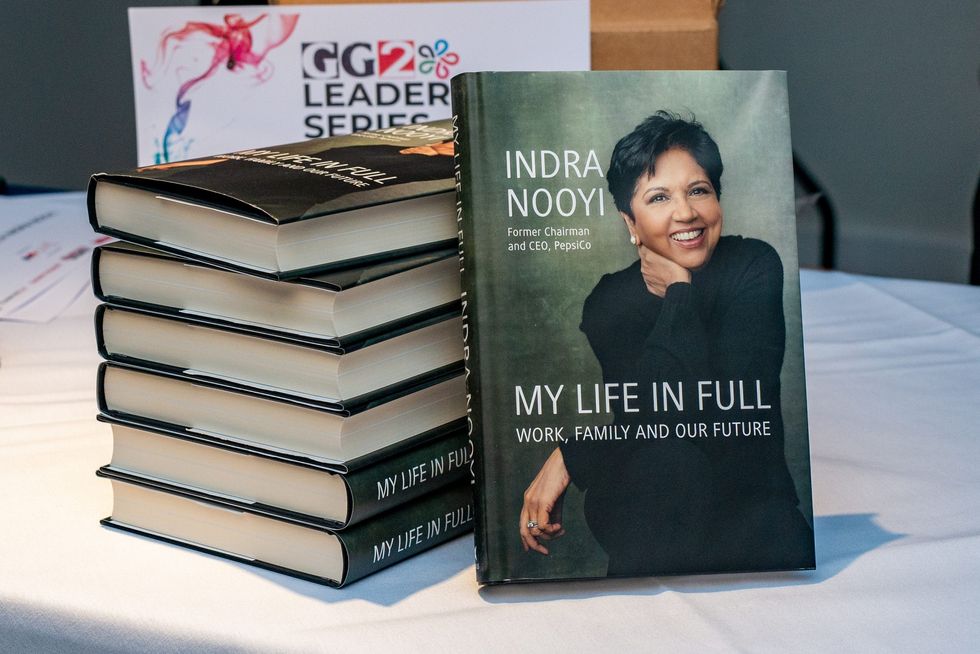
“A friend at an investment bank told me that he and other Indian Americans in US business were holding their heads a little higher and feeling they might be taken more seriously as potential leaders in their own firms because, for the first time, an Indian American was finally heading up a quintessential American consumer company.”
For millions of Indians, women and girls, Nooyi is a role model who ran a major multinational company in the US, while raising children with her husband Raj.
She acknowledges it is a “bit of a lottery” to have a supportive spouse and family (including her in-laws), but Nooyi wants women everywhere – from the US corporate companies to daily wage labourers in India – to benefit from jobs that offer paid leave, a support system for children and family, as well as flexibility of work.
Nooyi told Eastern Eye, “Everybody realises that women – who carry a disproportionate amount of the burden of homecare duties and childcare – are also smart, hungry and want to really contribute to paid work. The only way to allow them to fulfill their hopes and dreams and engage in paid work is to have this infrastructure support.”
Her ambition extends to the anganwadi workers in India – labourers on building sites or on farms and who earn daily wages. Nooyi wants them to have a support system where their children will be cared for, while the parents work.
She said, “How does one take something like the anganwadi system and create anganwadi 4.0 – which, in rural areas, is a community centre for childcare and for women’s counselling?
“How do we create a whole new system that can help women in rural areas? I have lots of ideas, I’m thinking through all of that.”
Nooyi grew up in Madras (now Chennai) in south India, where she was raised with her two siblings – an older sister and a younger brother – before she migrated to the US on a scholarship to study at the Yale School of Management.
While she is not the first one to seek better opportunities abroad, Nooyi writes about India’s brain drain, with students who received the best possible education leaving their homeland for jobs in predominantly western countries.
Nooyi’s elder sister went to one of India’s leading B-schools, the Indian Institute of Management (IIM in Ahmedabad, Gujarat), while she herself got admission to IIM in Calcutta (now Kolkata). Today, all three siblings live in the US.
She told Eastern Eye, “The big advantage India has is its talent base. It’s now got a thriving entrepreneurial ecosystem, startups and unicorns. India’s got many, many coming up.
“There’s still a way to take the best brains in the country – the ones who graduate from the IITs (Indian Institutes of Technology), top schools – and figure out how to deploy them in the country, to further the country, which means we’ve got to remove burdensome regulation, find a way to incentivise them to stay in India.
“Or, if you want to go overseas, come back and contribute to the country. And we should figure out how to create innovation parks, whatever it takes – for the betterment of the country.”
Like it was the case for many middle-class families in India, Nooyi writes in the book that the priority for her parents (and her grandfather) was getting the children a good education. They paid for additional tuition where needed, so they had a good chance while writing competitive exams.
In a country as vast as India, Nooyi is aware of the wide discrepancies in access to education opportunities for children. She describes some of the best ways to improve the education sector “because we have such a wide variety of quality of education”.
“How do you take the bottom 50 per cent and improve them? Why can’t you use the top 20 or 30 per cent and improve the bottom 50 per cent?
“Just as we have Teach for America here [a non-profit organisation where ‘outstanding leaders’ teach for at least two years in low-income schools], how do we get tutoring for India or Teach for India in a much more significant way? And deploy these grants to help India?
“We have to evoke patriotism in the country and get them to contribute. There’s work to be done.”
Nooyi also tells Eastern Eye how her early years in a newly independent India defined the person she became, adding that she wanted to “give back in profound ways”. Both she and her husband Raj have paid for better facilities at their alma maters, she revealed.
It was in the US that Nooyi met her husband. The couple married there and have two daughters, Preetha and Tara, who were raised with help from extended family while both parents had full-time careers.
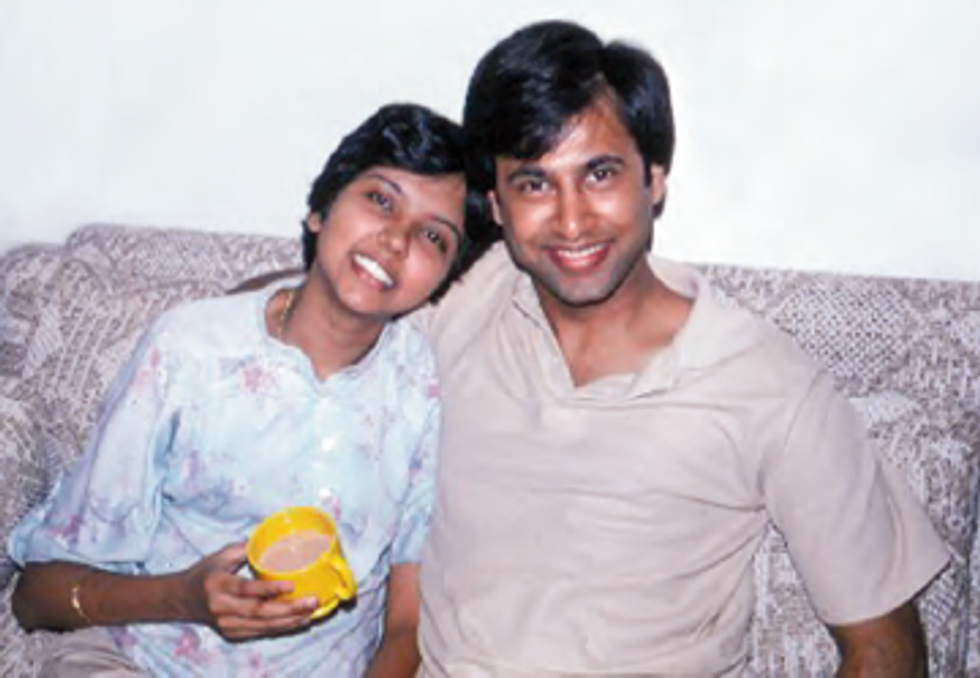
This, she says, was her biggest achievement. “My kids, my family – the fact that I managed to juggle everything and hold it together is no mean accomplishment,” she told Eastern Eye.
“It was also my toughest challenge, because there’s only 24 hours in a day. You’re trying to really, really do a good job; you’re studying all the time, you’re working hard, and people look at you and go, ‘do you ever take a break?’
“One of my daughters would say, ‘Mom, why do you have homework every day at home?’ “In retrospect, it is very painful to hear all these statements. As I look back at my life, there are all my big accomplishments, they were filled with challenges, through juggling acts. I did lots of juggling all the time. There were a couple of times when my kids would say, ‘We missed you, you didn’t come to this event, or that event’ and I’d say, ‘OK guys, I think I’ll just quit and stay home.’ And immediately they would go, ‘Oh, no, no mum, you worked so hard to get here, so don’t quit.’”
Nooyi notes how a woman’s biological and career clock are “completely in conflict with each other”. As women are trying to establish themselves in their careers, it is also the best time for them to have children.
“The stress surrounding work and family has many millennials, sadly, delaying marriage and childbirth or deciding not to have kids at all,” Nooyi writes in the book. “In 2019, the US fertility rate fell to 1.7 births per woman of childbearing age, a record low.
“Not everyone has to want children…but, broadly, I think we need to do more to value families having children and raising them to be educated, productive citizens.”
However, Nooyi also points out how “many men – CEOs and others – perpetually linger on the sidelines of the work-family debate, in part because they are reluctant to break routines that are, ultimately, easy and comfortable, and lucrative to them”.
She writes, “I’ve noticed that younger men, including husbands and dads who are just as stressed as their partners, also refrain from this discussion, perhaps fearful of hurting their chances to move ahead. They need to realise that this is their burden too.”
Her husband Raj is the exception to the norm, she admits. From the outset, she could count on his unconditional support and that of her in-laws too.
“My husband never asked me to quit,” she told Eastern Eye. “He always supported me to keep working, because, he said, ‘Look, that’s who you are. Why are we trying to change?’ He made a lot of sacrifices for me along the way. I want to give him a lot of credit.”
What would her advice be to women who may not have the kind of supportive spouse she has? She said, “You have to ask yourself why you are getting married and what your hopes and dreams are?
“If your hopes and dreams are to have a career and remain in paid work and really move forward, while also having kids, if you don’t have a supportive spouse – it’s not going to work.
“Even without kids, having a non-supportive spouse is not going to work, if you want to move hard and make all the trade-offs. “So, you have to choose your spouse correctly.
“That’s a challenge by itself. And both of you have to commit to equality in the marriage. If you say, ‘Well, he’s the boss, I’ll just slot my career into any free time, then you’ve got to live with the consequences that come with that.
“But right off the bat, if you both agree this is what your hopes and dreams are, then you’ve got a fighting chance to keep your job and move it forward.
“I think in my case, there’s also the parents and in-laws, who leaned in and said, ‘Just keep working, don’t worry about it.’ My in-laws were fantastic; my parents were always fantastic.
“A combination is what works. I understand it’s a bit of a lottery.” Nooyi added, “There are many, many more people in my generation who are now parents and inlaws. We want the best for our kids. We want them to dream, we want them to fly. It’s important that my generation now supports the younger ones to do whatever they want to do.”
Despite her incredibly successful career in corporate America, Nooyi recalls how early on in her working life, she was seen a diversity hire. She also reveals where quotas may be needed.
“Having a critical mass of talent in different parts of the pipeline does help,” she told Eastern Eye. “If there is bias that’s actually discriminating against a group of people, and you have to force people in, then quotas help.”
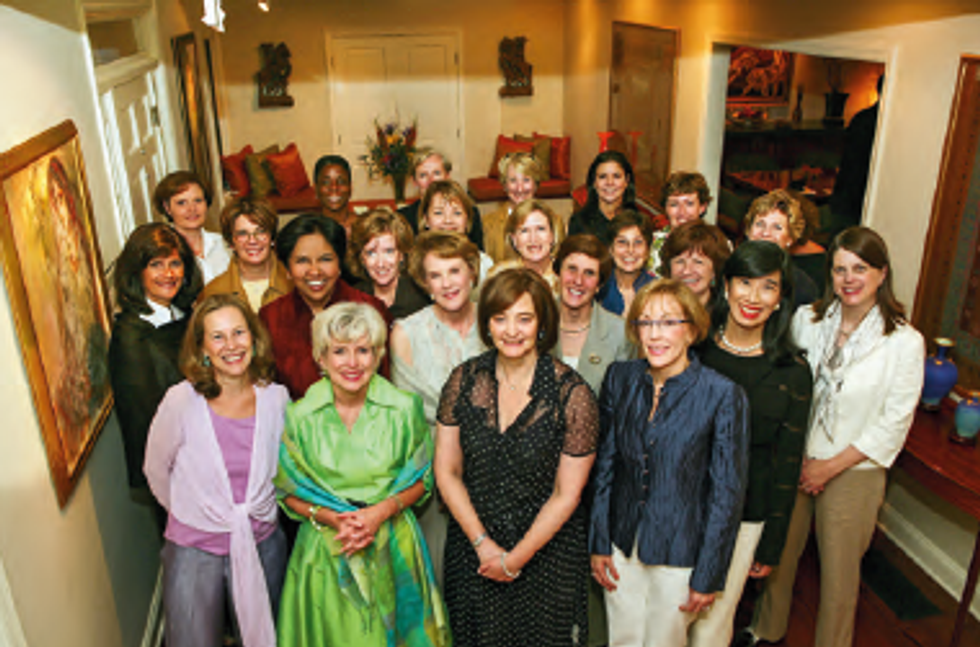
However, she added, “The thing to be very, very careful about is if you have a quota programme and you bring people in, you don’t want these people to be looked at as a quota hire.
“You’ve got to make sure that they don’t feel bad about their hiring. So how you position it and how you talk about it is very, very, very important. If you don’t have a critical mass of diverse people moving up the chain, you can never get them to the top.
“We have to prime the pump.”
When she first joined PepsiCo, Nooyi recalls she was described as a “quota hire”. How did that make her feel?
“I didn’t care. I said, ‘You can say what you want, I am going to do what I want to do. If I don’t like a certain decision that you guys are making or certain acquisition you’re proposing, I’m going to make my point of view felt,’” she explained.
“‘I don’t care whether you call me a quota hire or whatever hire. I’m here to run corporate strategy. And I think this acquisition is bad.’ I was fearless.
“The difference was this – my husband was working. And we didn’t care whether my salary came in or not, because we were used to living on so little.
“As we moved up, we didn’t expand our spending to fill our new wealth. We could live on the same thing we lived in before. “We said, ‘We both don’t need to work. But let’s go to work knowing that we’re always going to tell the truth.’ So, it was liberating in its own way.”
My Life in Full: Work, Family and Our Future by Indra Nooyi was published in September by Piatkus.







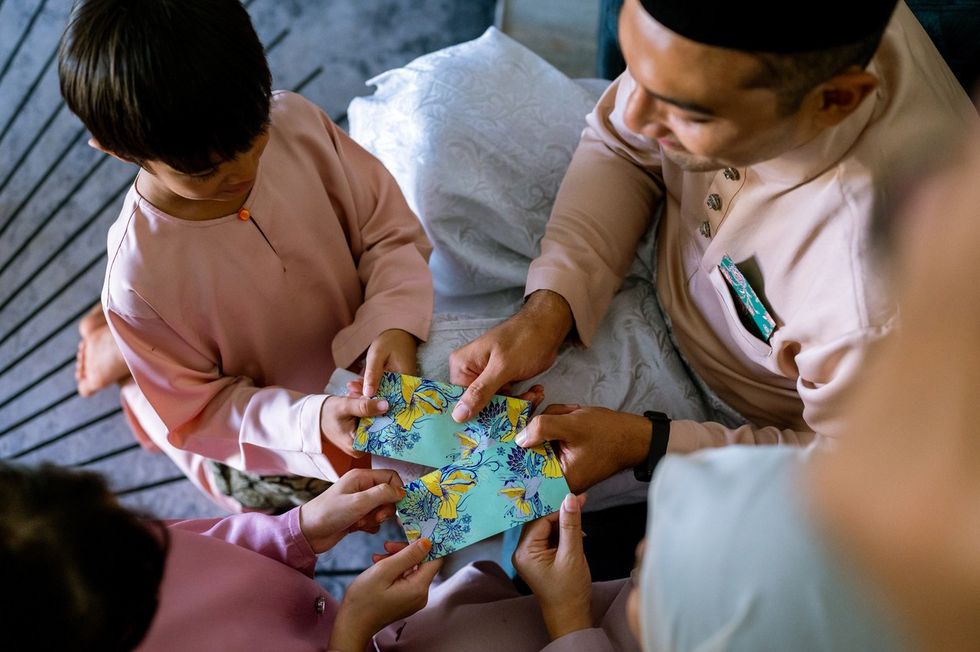















 Vikram Doraiswami
Vikram Doraiswami Andrew Quintman
Andrew Quintman Lord Jitesh Gadhia
Lord Jitesh Gadhia 
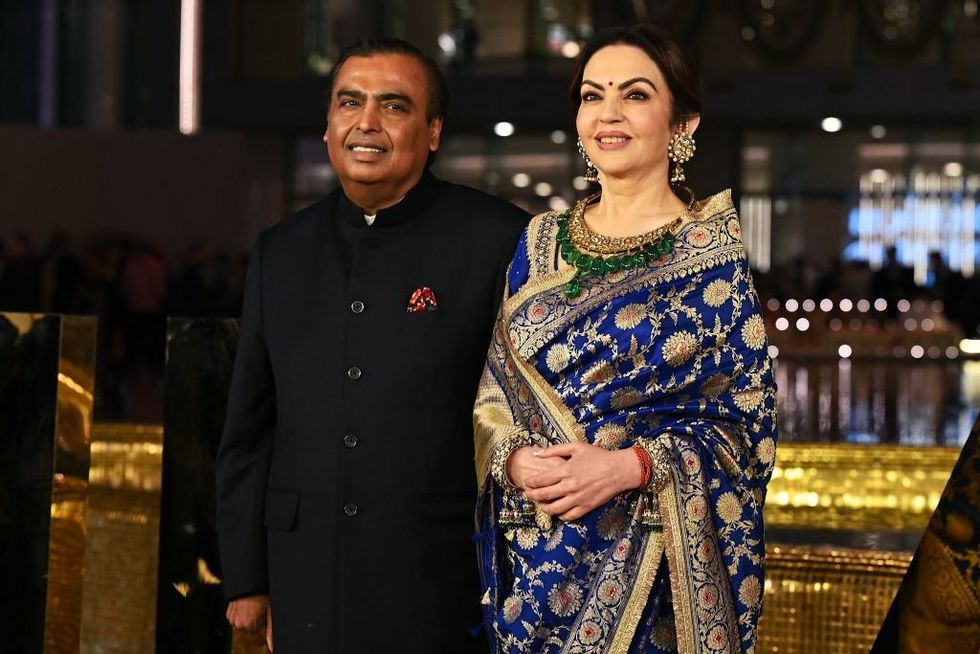 Chairman and managing director of Reliance Industries Mukesh Ambani along with his wife Nita Mukesh Ambani (Photo: Getty Images)
Chairman and managing director of Reliance Industries Mukesh Ambani along with his wife Nita Mukesh Ambani (Photo: Getty Images)